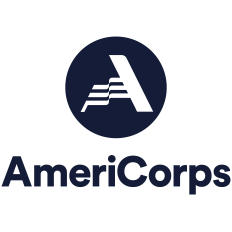March 29, 2019
We are all here to promote educational equity

Written by Jesus Martinez Jr. on December 3, 2018.
I’ll be the first to admit that I didn’t initially know the depth of what interning as a development and communications intern meant when I first sent in my resume and cover letter. But I did read a specific bullet point in the advertisement that hooked me after the ad was redirected to me through my school’s internship coordinator. The bullet point read, “This role is ideal for you if you want to use your voice to promote educational equity for all.” The phrase “educational equity for all” reverberated in my mind like an old bronze bell sounding an alarm. After reading that point and researching the website a little more, I realized I wanted to be a part of this team.
Being born to and raised by Mexican immigrants, and being one of the few in my immediate and extended family to enter a university and stay there, education, as I saw it, was a determining factor in my professional and personal development. So when I read on the Reading Partners website that “only 15 percent of DC’s fourth graders from low-income families could read proficiently in 2015, placing DC among the worst-performing cities in the country,” I thought about the repercussions a lack in reading proficiency could have, not just now, but years down the road, for the other 85 percent.
This statistic made me think about how differently my life would have been if figures like my mother hadn’t stayed up reading Corduroy or the Spot series (in Spanish) to me under the spotlight of our little lamp, accompanied by a big family in a small home.
She’d slide her finger across the page and point to every word as she iterated them, “Cuando. Llegó. Piso. Siguiente,” all to get me to know how to read and love the act of reading. And it worked.
Consequently, I felt it was a duty of mine to empower Reading Partners students in any way I could because I knew what reading had done for me, and I could only fathom what it could do for students who come from low-income or underserved communities, as my family and parents had once come from too.
Interning with Reading Partners gave me the opportunity to see what it was like to help children achieve higher levels of reading proficiency — not just by tutoring them, but through the equally important administrative tasks that often go unnoticed or unacknowledged. It’s easy to forget that an organization raising awareness about and raising funds for important issues requires groups of people who act as intermediaries between the cause and the public at large.
To recruit volunteers who would want to help kids read, somebody has to be reaching out to people and keep in touch with them. To coordinate between the organization itself and schools, somebody has to be deliberately working with schools to make the purpose come to fruition. To gain funds to keep the organization’s mission going, as well as expanding, somebody has to be using the nuances of technology and social media to attain this goal. Thankfully, I got to work alongside these somebodies.
I gained insight into what it’s like to run an organization at the administrative level and found a new sense of respect for the people behind closed doors who keep the vehicle running. Whether I was helping my colleague research interesting articles that could be posted on social media, or helping to prepare mailings for loyal donors, I saw that just as tutoring students is vital to the program, so are the people who help coordinate these large-scale projects. So while it may have seemed insignificant at first when I prepared the letter mailing with careful attention to detail, I realized something as I stopped to look at one of the pictures on the brochure — a little girl smiling up at her tutor as she pointed to the book.
Is it possible that this student has improved her chances of going to college because she met with a tutor twice a week?
Is it possible that deep in her mind she began to foster an affinity for reading or an unsatiated thirst for knowledge that would come to let her flourish in several ways that wouldn’t have been possible if no one read to her at this specific time in her life?” The trajectory that has changed for her, and other students like her, because of these weekly tutoring sessions, is what makes all of this work meaningful and powerful.
It’s great to know that many of the children who are receiving individualized literacy instruction are so dramatically improving their chances at success, one tutoring session at a time. The donation that comes back through the letter ends up buying a book like Corduroy. And a book like Corduroy might evolve into a symbol of the power in literacy, curiosity, and education. And that symbol might come to inspire those who learn to read and are taught to read, to break barriers and overcome obstacles because they no longer have to worry about catching up to their peers or feeling embarrassed because they are unable to pronounce certain words.
It’s why Reading Partners is here. It’s why a development and communications intern like me is here. And it’s a really good reason for all of us to be here.
Interested in an experience working with Reading Partners like Jesus? Consider a year of service with us through AmeriCorps. Together, we can make a difference.












